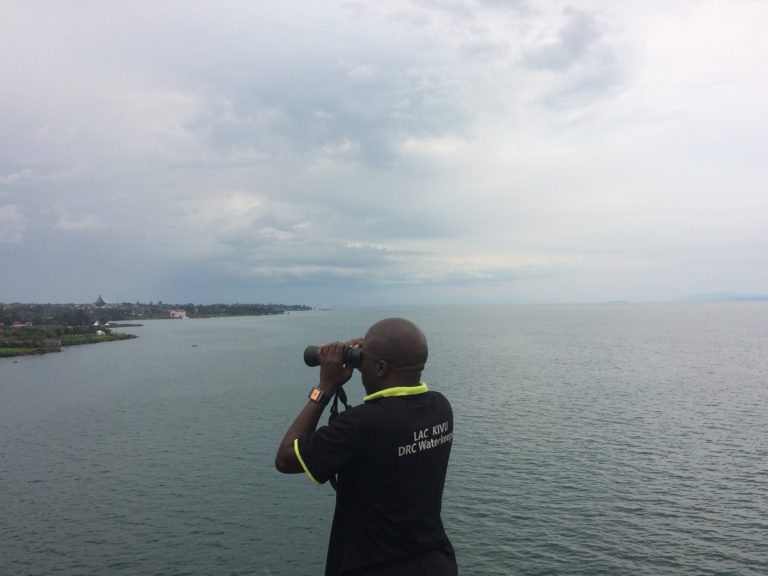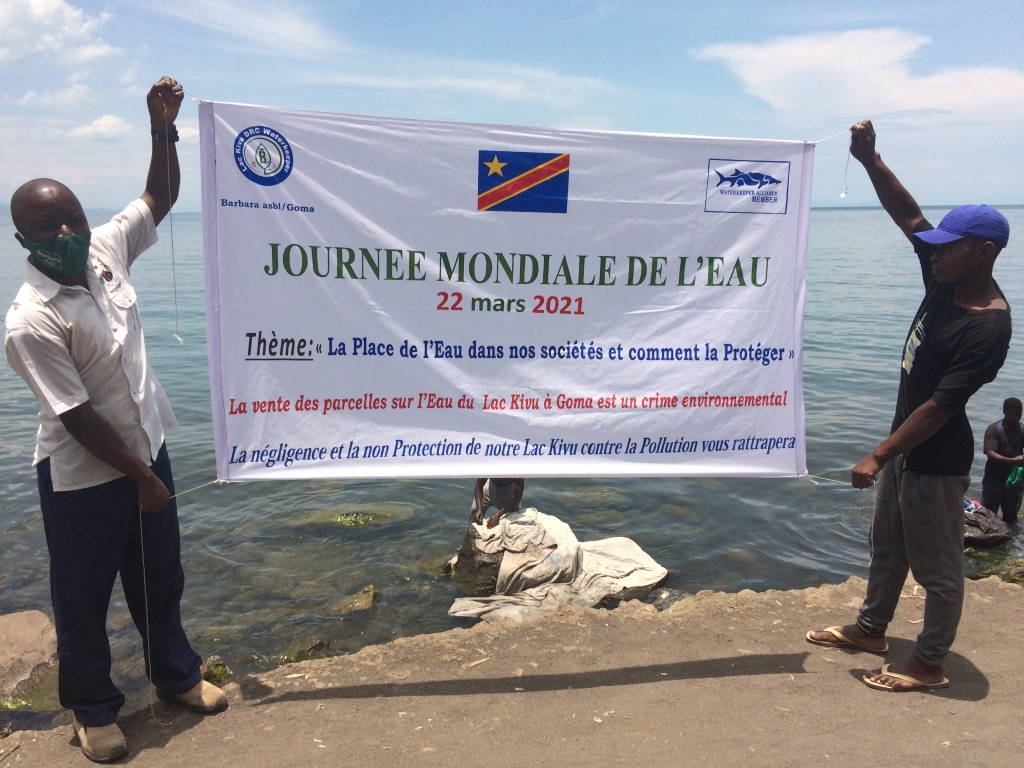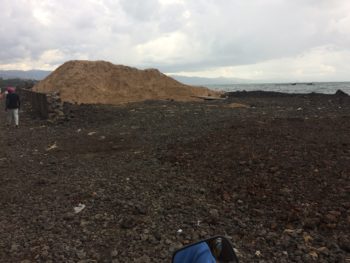Danger Above and Below the Surface: Pollution Threatens Africa’s Explosive Lake Kivu
By: Thomas Hynes

Lake Kivu sits on the border between Rwanda and the Democratic Republic of the Congo (DRC). The lake has a jagged coastline and dozens of islands. Most of the 2 million people who live near the lake get their drinking water there. The lake’s fishing industry provides jobs for many and nutrition for even more people.
Lake Kivu is one of Africa’s Great Lakes, the series of water bodies that constitute the Rift Valley, where tectonic forces are slowly pulling Eastern Africa apart from the rest of the continent. This geologic process can cause volcanic activity as evidenced by Mount Nyiragongo, an active stratovolcano just 12 miles north of the lake’s northern shore.
There is also quite a lot of activity below the surface of the water, by way of vast methane deposits. This overabundance of gas makes Lake Kivu susceptible to limnic eruptions, meaning the lake could literally explode at any time. However, these same conditions could lead to an abundant energy solution for the area. Efforts are already underway to safely trap the methane that sits in the deeper parts of the lake and convert it into a power source.
Paul Lughembe is the Executive Director and Lac Kivu DRC Waterkeeper (lac meaning lake in French). He can’t change the inherent chemistry of the lake but does work hard to protect it against other activities, mostly pollution and other human caused impacts. He often leads groups of volunteers to remove plastic pollution and other trash from the lake. These risks that Lughembe hopes to guard against may not be as dramatic as an exploding lake, but they can still do plenty of harm to the lake and the millions who live near it.
Recently, to commemorate World Water Day, Lughembe sent a letter to the Governor of the North Kivu province advocating for the protection of the lake. He hoped to draw attention to the mismanagement of Lake Kivu and highlight the proliferation of pollution on the lake, which, among other things, undermines public health.


In his letter, he writes, “Any discharge of waste, substances, organisms or invasive alien biological species liable to pollute, alter or degrade the quality of surface or underground water, both continental and maritime, is prohibited, and may harm their biological resources and ecosystems coastal areas and endanger health.”
Lughembe also warns against the effects of construction, specifically where developers and homeowners fill in the shore to create larger or even new parcels of land (shown in the video below). It disrupts the ecosystem, jeopardizes the health and wellbeing of the lake, and also interferes with the public’s access to the water. Additionally, according to Lughembe’s letter, these “volcanic stones are poured into the lake, which can modify the chemical composition of the water.”
Lughembe also points out the lake’s role as a tourist destination and the economic benefits that could come to the area by managing this resource correctly. Ultimately, he hopes his letter will encourage the government to protect the lake and beaches for future generations to experience and enjoy.
Lake Kivu and its unique chemical composition is already precarious enough. Adding reckless pollution and poor construction practices to the lake will only make things more dangerous.